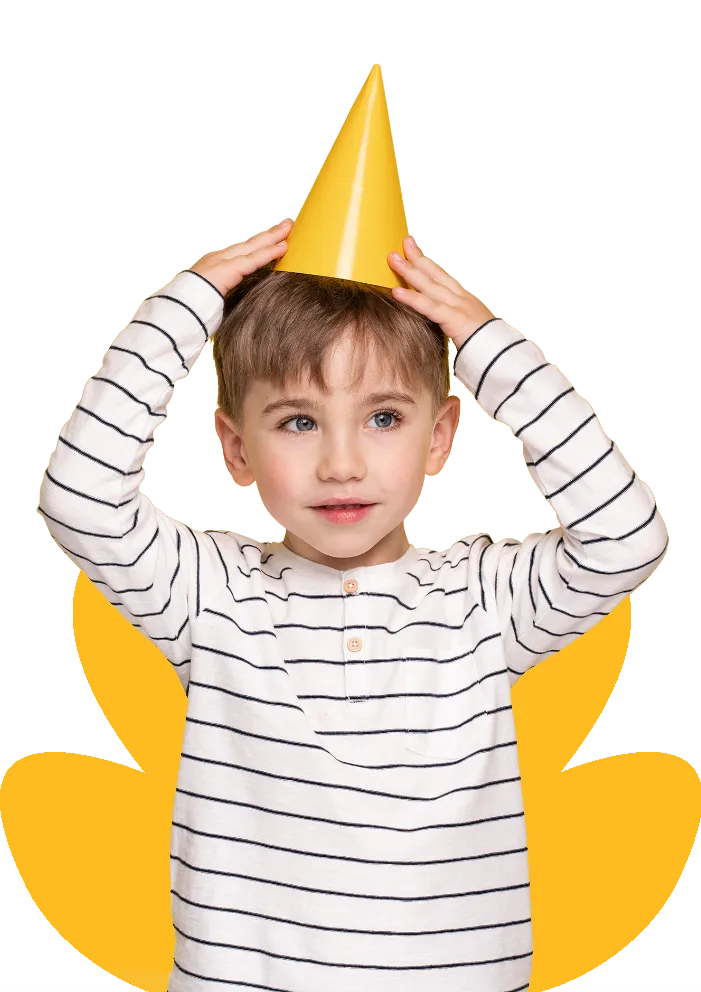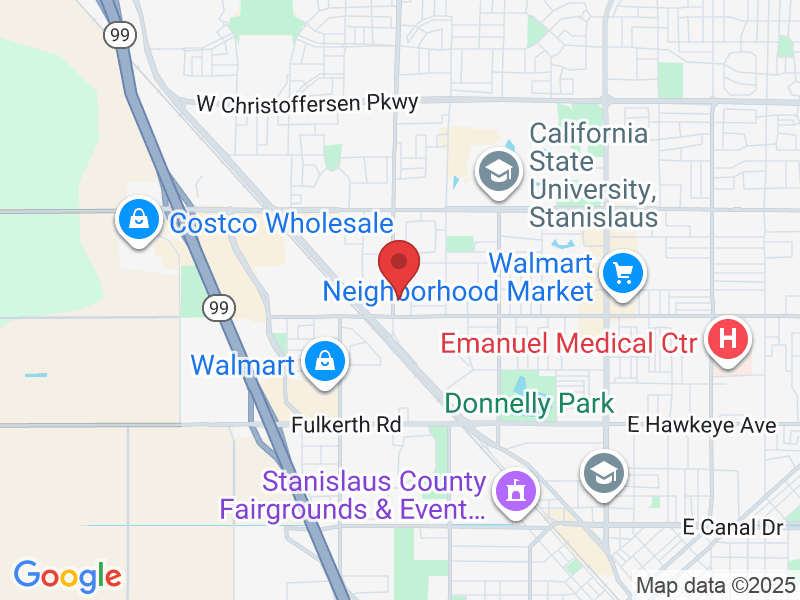Finding the right child care isn’t easy — come see why families love it here. Book a Tour Now!
Programs
Sunny Grove Preschool and Childcare in Turlock

Seedling Program 6 weeks - 24 Months
In the Seedling Program, we care for children younger than 2 years old. Our teachers focus on developing supportive, trusting relationships with the children in our care. We create rich environments that encourage very young children to explore and discover the world around them, helping them to engage in experiences designed to support their optimal development in all domains.
We also value and respect parents as their children’s first teachers. We partner with parents in learning everything we can about their infants and toddlers to better care for their needs and plan for their development. We document, track and communicate closely to the parents about the children’s development and progress. As a result, our programs create a strong three-way bond between child, parent, and caregiver.
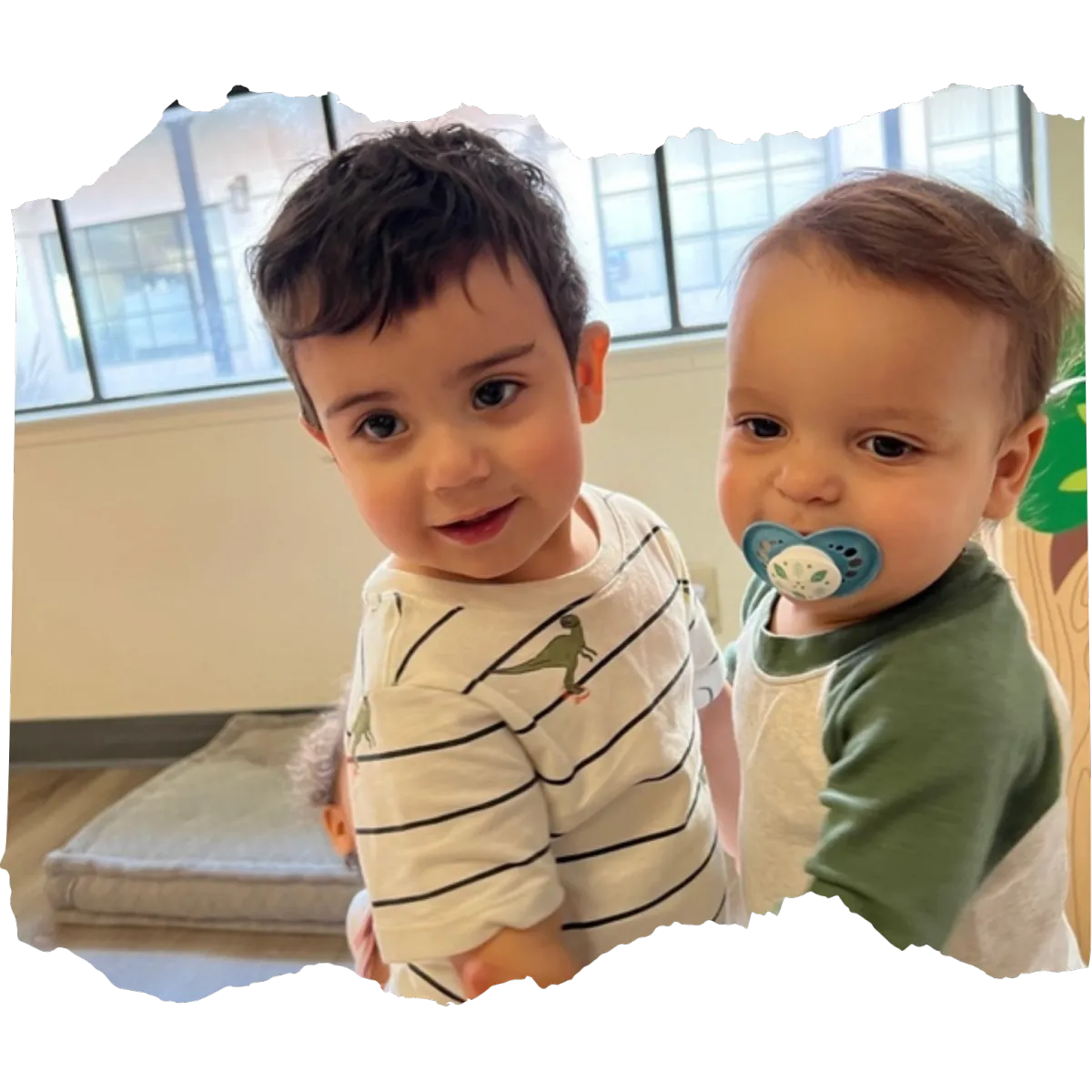
Clean, Cozy and Calming Space
Our infant room is designed to feel like a warm, gentle nest—clean, soft, and peaceful. The space is thoughtfully arranged with soothing colors, age-appropriate furniture, and cozy spots for snuggles or quiet moments. Safety and cleanliness are top priorities, creating a nurturing environment where your baby can relax, explore, and grow.
Personalized Feed/Nap Schedule
Every baby is unique, and we honor that by following each child’s individual feeding and sleeping routine. Whether breast milk, formula, or purees, we work closely with families to maintain consistency and comfort. Nap times are calm and restful, always aligned with your baby’s needs and cues.
Enriching Activities Stimulates Senses
Our daily activities are carefully chosen to engage your baby’s senses and spark early curiosity. Through textures, colors, sounds, and movement, we help infants discover and explore the world around them in a safe and meaningful way. Everything is designed to nurture early brain development while making learning joyful.
Sample Activity: Fill and Empty
Desired Results: children fill and empty, put in and take out.
Action: Teacher puts down multiple containers that are different sizes and shapes. Teacher put multiple manipulatives down near the containers that infants can fill and empty the containers. Teachers model to the infants filling and emptying the containers and encourage the infants to explore the materials. Teachers will observe and guide the activity.
Daily Tummy Time and Motor Play
Tummy time is part of our daily rhythm, helping babies build core strength and reach important physical milestones. We incorporate movement and motor play into the day, whether it's reaching, rolling, or practicing new skills like sitting and crawling—all in a supportive, encouraging setting.
Sample Activity: Big Paper Fun!
Desired results: the children explore the paint with their bodies.
Action: The teacher will roll out a very large piece of butcher paper on the ground. We will have the infants in their diapers and put out a couple of nontoxic color paints around the paper (to encourage the infant to crawl to different areas).
Language Through Songs and Stories
Babies learn language best through loving interaction, and we make it part of every day. Teachers sing songs, read picture books, and talk through routines to immerse infants in rich, nurturing language. These early moments lay the foundation for future communication and literacy.
Outdoor Sunshine, Nature Explore
Fresh air and nature are part of our daily care. Whether it’s a stroller ride, feeling grass under tiny toes, or simply observing the trees and sky, outdoor time helps calm and stimulate growing minds. We make the most of our safe outdoor space to support health, sensory exploration, and a gentle connection to the world.

Sprout Program 24 month - 3 Years
The Sprout Program is designed for children from 2 years old through 3 years old. Children at this age develop rapidly. We adopt HighScope curriculum. Guided by the milestone tracker, we also accommodate the children’s individual need and growth paths. Age-appropriate hands-on activities and stimulating environments are created to satisfy the beginning learners’ curiosity. We pay emphasis on outdoor exploration and artistic expression, from which the little ones explore outside and within.
We value and respect parents as their children’s first teachers. We partner with parents in learning everything we can about their infants and toddlers to better care for their needs and plan for their development. We document, track and communicate closely to the parents about the children’s development and progress. As a result, our programs create a strong three-way bond between child, parent, and caregiver.
Curious Minds, Joyful Discovery - Approaches to Learn
Toddlers are natural explorers, and we embrace their curiosity with hands-on activities that encourage creativity, problem-solving, and independence. Whether they’re stacking blocks or figuring out how a toy works, we create a safe space for children to try, test, and learn at their own pace.
Learning Feelings, Building Friendships - Social/Emotional Development
We support toddlers in recognizing and expressing their emotions, developing empathy, and forming trusting relationships with teachers and peers. Through group play, gentle routines, and positive guidance, they learn how to take turns, share, and feel confident in a community.
Busy Bodies, Growing Strong - Physical Development
Our days are filled with movement—running, climbing, dancing, and more. Toddlers also practice fine motor skills like feeding themselves or manipulating small objects. We encourage healthy habits like hand washing, trying new foods, and rest, building a strong foundation for physical well-being.
Little Voices, Big Ideas - Communication and Language
Language blossoms in our toddler room with songs, fingerplays, books, and everyday conversations. Teachers model rich vocabulary and listen closely to toddlers’ words and gestures, helping them grow in confidence as communicators and early readers.
Counting Toes and Sorting Blocks - Mathematics
Early math is everywhere—from counting steps to matching socks. Toddlers explore numbers, patterns, sizes, and shapes through playful activities that build early math thinking in a natural and fun way.
Sample Activity - Leaf Patterns
Desired Results: children explore and notice the location of objects.
Action: During Large group, the teacher will discuss and show pictures of the objects hidden around the room. The teacher will hide items around the room and go on a scavenger hunt with the children to locate the missing items in the classroom.
Messy Hands, Creative Hearts - Creative Arts
Toddlers express themselves freely through painting, drawing, music, and dramatic play. We provide open-ended materials and encourage them to explore colors, textures, sounds, and movement as ways to share their ideas and feelings.
Learning about Me and My World - Social Studies
Through stories, songs, routines, and dramatic play, toddlers begin to understand the world around them. They learn about their families, communities, and cultures in ways that build identity, respect for others, and a sense of belonging.
Sample Activity - Hide and Seek
Desired Results: children explore and notice the location of objects.
Action: During Large group, the teacher will discuss and show pictures of the objects hidden around the room. The teacher will hide items around the room and go on a scavenger hunt with the children to locate the missing items in the classroom
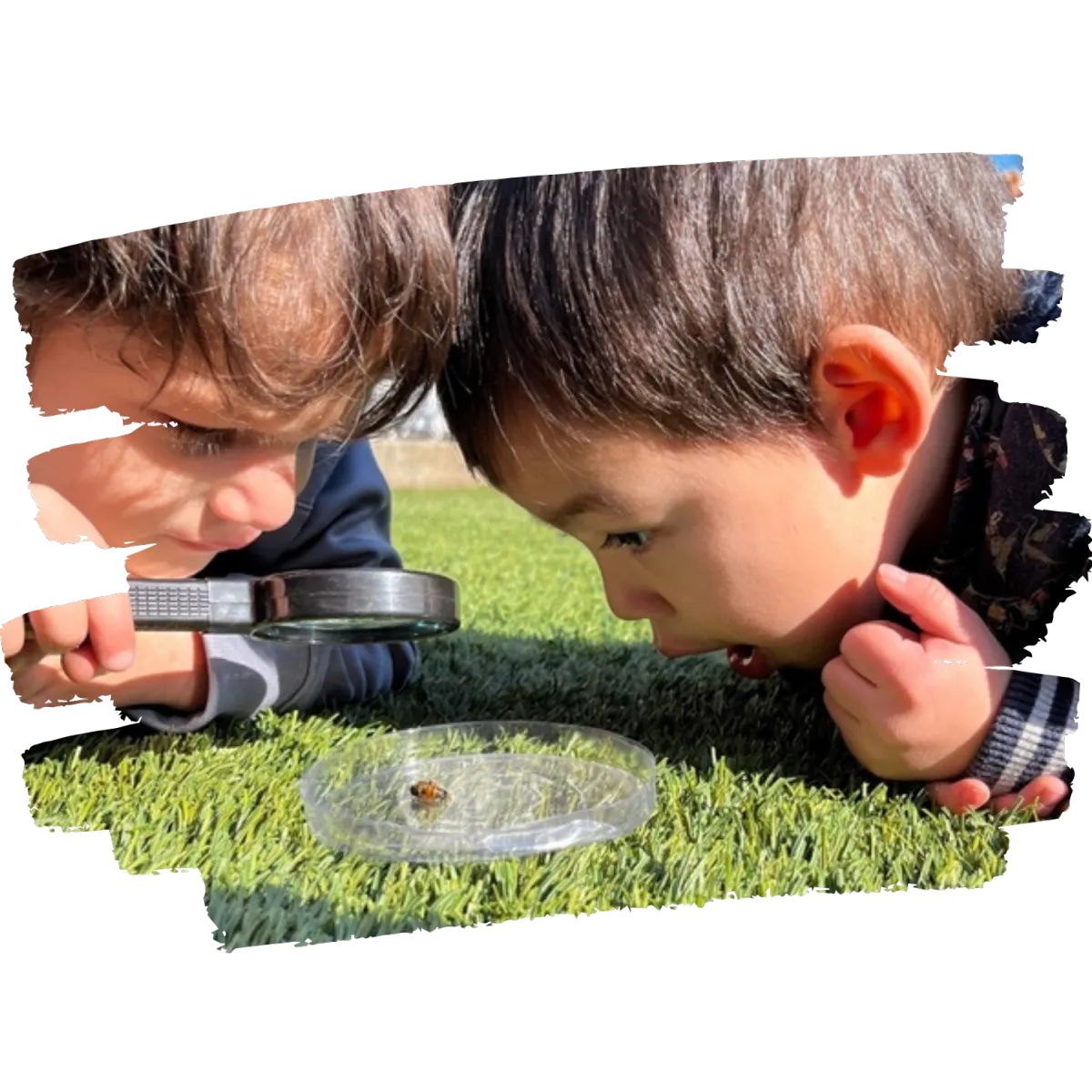

Acorn Program 3 Years - 4 Years
In the Acorn Program, we welcome children from 3 years old through 4 years old. The children at this age are increasingly independent. Our teachers focus on help the children to develop the abilities to help themselves, recognize/regulate emotions, interact with other children and follow instructions and proper social behaviors. Just as other classrooms, the teachers in this classroom follow indicator-based HighScope Curriculum. The children will gain broader understanding of the world, further develop the language and pre-math skills, explore nature and express their creativity.
We also value and respect parents as their children’s first teachers. We partner with parents in learning everything we can about their infants and toddlers to better care for their needs and plan for their development. We document, track and communicate closely to the parents about the children’s development and progress. As a result, our programs create a strong three-way bond between child, parent, and caregiver.
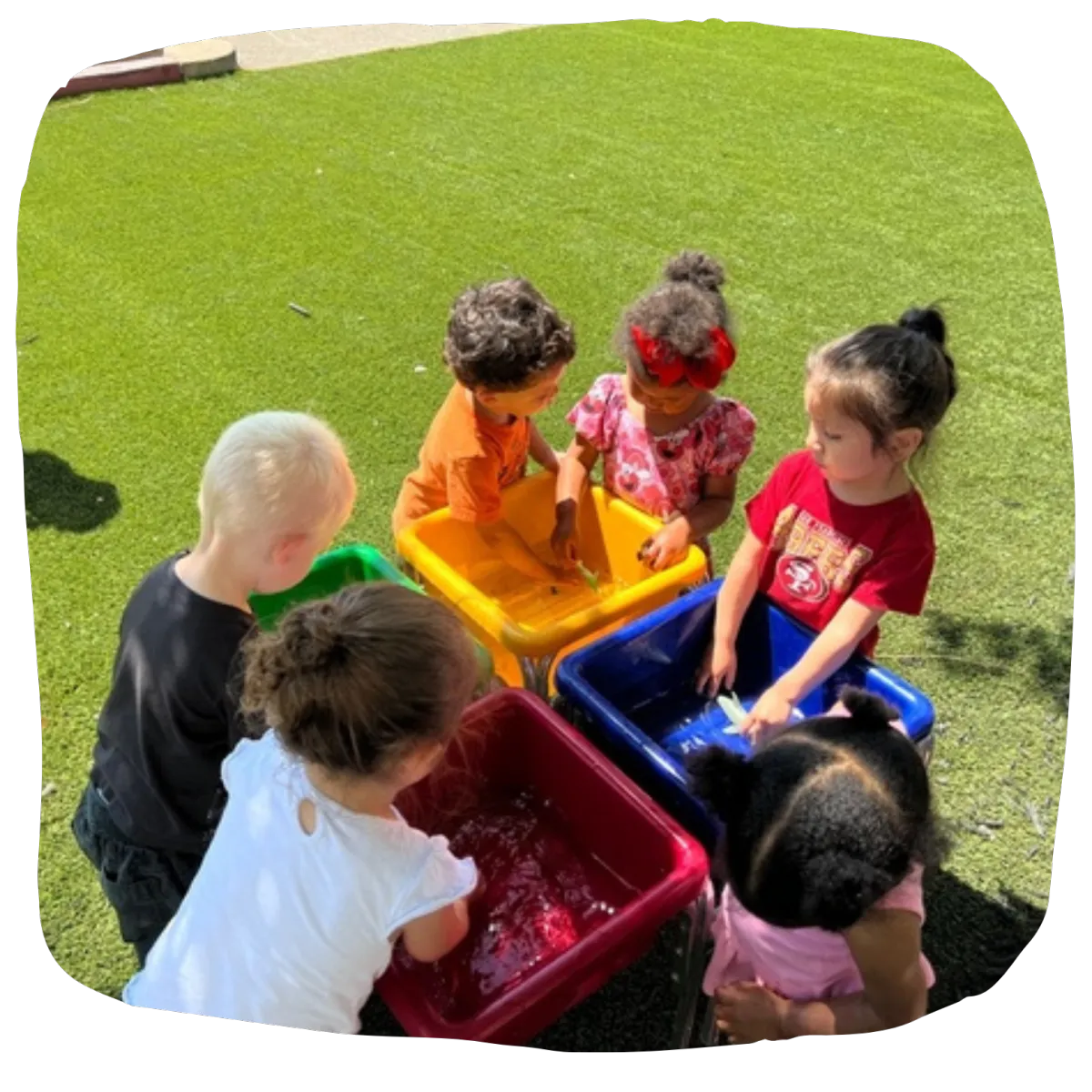
Learning to Care, Share, and Thrive - Social/Emotional Development
At this age, children are developing self-awareness and deeper friendships. Through group play and caring guidance, they learn to manage emotions, resolve conflicts, and feel proud of their progress and contributions.
Growing Stronger Every Day - Physical Development
We offer daily opportunities for movement—indoors and outdoors—so children can build strength, coordination, and healthy routines. Activities like jumping, balancing, cutting with scissors, and self-care help preschoolers grow with confidence.
From Words to Wonderful Stories - Communication and Language
Preschoolers love to talk, tell stories, and ask “why.” We build strong language and literacy skills through daily read-alouds, rich conversations, storytelling, and fun with letters and sounds—all in a language-rich environment.
Discovering, Sorting, Counting, and Questioning - STEM
From building with blocks to experimenting with water, preschoolers are constantly testing ideas. We guide them in recognizing patterns, counting, comparing, and asking “what if?”—developing logic, early math, and scientific thinking through hands-on discovery.
Sample Activity - Walking on Egg Experiment
Desired Results: Children observe the materials and process in the environment.
Action: The teacher first asks the children what would happen if they walked on eggs. A couple of cartons eggs are laid out to make a walkway. The teacher re-reads the children guesses and have the children walk on the eggs. At the end of the experiment, the children are encouraged to talk about our findings.
Imagination Leads the Way - Creative Arts
Children express themselves through painting, music, pretend play, and more. Creative activities help them explore their feelings, build confidence, and celebrate their ideas in ways that are joyful and meaningful.
Learning About Self and Others - Social Study
Through stories, role-play, and shared experiences, preschoolers learn about families, traditions, and community helpers. These early lessons foster identity, empathy, and respect for others in the world around them.

Pinecone Program 4 Years and Up
In the Pinecone Program, we welcome the preschoolers (4 years old and up). Our teachers focus on developing supportive, trusting relationships with the children in our care. We create rich environments that encourage very young children to explore and discover the world around them, helping them to engage in experiences designed to support their optimal development in all domains.
We also value and respect parents as their children’s first teachers. We partner with parents in learning everything we can about their infants and toddlers to better care for their needs and plan for their development. We document, track and communicate closely to the parents about the children’s development and progress. As a result, our programs create a strong three-way bond between child, parent, and caregiver.
Ready to Lead, Eager to Learn - Approaches to Learn
In Pre-K, children develop focus, persistence, and initiative—skills they’ll use every day in kindergarten. We encourage curiosity through open-ended tasks, classroom jobs, and independent choices, helping children become confident, self-directed learners.
Confident Kids Who Work Well with Other - Social/Emotional Development
Kindergarten requires children to cooperate, take turns, and manage big feelings. In our classroom, we nurture those skills through group play, guided problem-solving, and daily routines that build emotional control, empathy, and responsibility.
Strong Bodies, Ready Hands - Physical Development
From writing their name to participating in PE, kindergarten requires physical confidence. We support both gross and fine motor skills through climbing, dancing, drawing, and tool use—plus healthy habits like handwashing, self-care, and eating well.
Speaking Clearly, Reading Ready - Communication and Language
Our language-rich environment prepares children to thrive in kindergarten. They build vocabulary, follow multi-step directions, recognize letter sounds, and begin writing. Daily stories and conversations strengthen both comprehension and expressive language.
Thinking Critically, Solving Problems - STEM
Kindergarten brings new challenges in math and science. We prepare children through hands-on exploration—counting, measuring, experimenting, and predicting. These early problem-solving experiences strengthen logic and build readiness for academic learning.
Sample Activity - Worm Farm
Desired results: children observe the biological process.
Action: The teacher introduces the materials needed to create a worm farm. The children fill the container with, dirt, rocks, water, newspaper, food waste and worms. The teacher makes small wholes at the bottom of the container. The worm farm is placed next to the window for the children to observe everyday.
Creative Thinkers, Expressing Freely - Creative Arts
Self-expression builds resilience, flexibility, and communication—all essential in kindergarten. Through art, music, pretend play, and movement, children explore ideas and emotions while developing fine motor control, focus, and a strong sense of self.
Curious Citizens of their Community - Social Studies
Kindergarten introduces children to shared responsibility and community roles. In Pre-K, we lay that groundwork by talking about family, helpers, fairness, and routines—helping children understand how they fit into the world around them.
Sample Activity - Recycling Collage
Desired Results: Children understand the importance of taking care of their environment.
Action: Children create a collage of items that should be recycled. Children will cut out pictures of items that should be recycled and not thrown away in the regular trashcan from newspaper's and magazine. Children will glue those pictures on their recycling collage
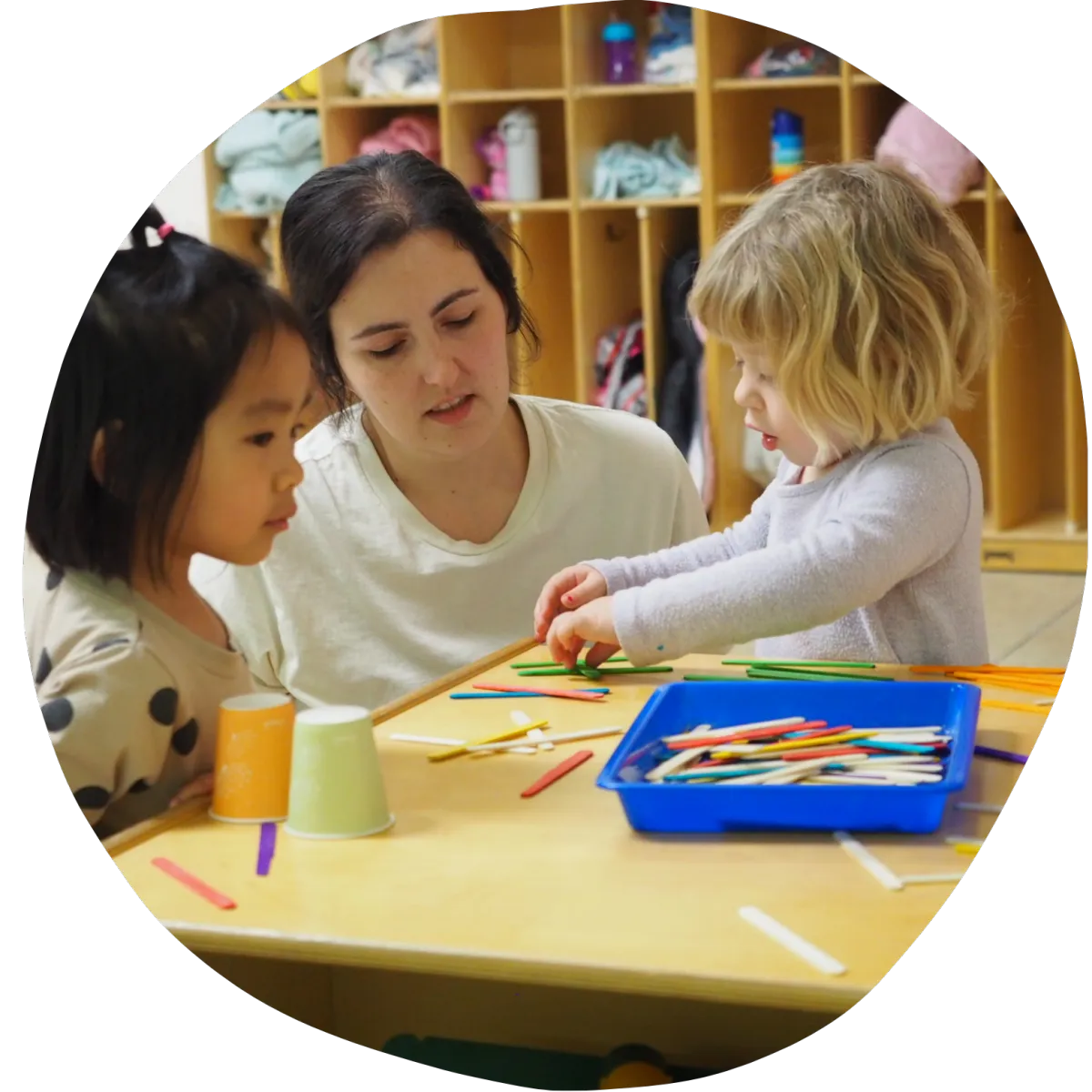
Your Child’s Journey Begins Today – Let’s Grow Together!
